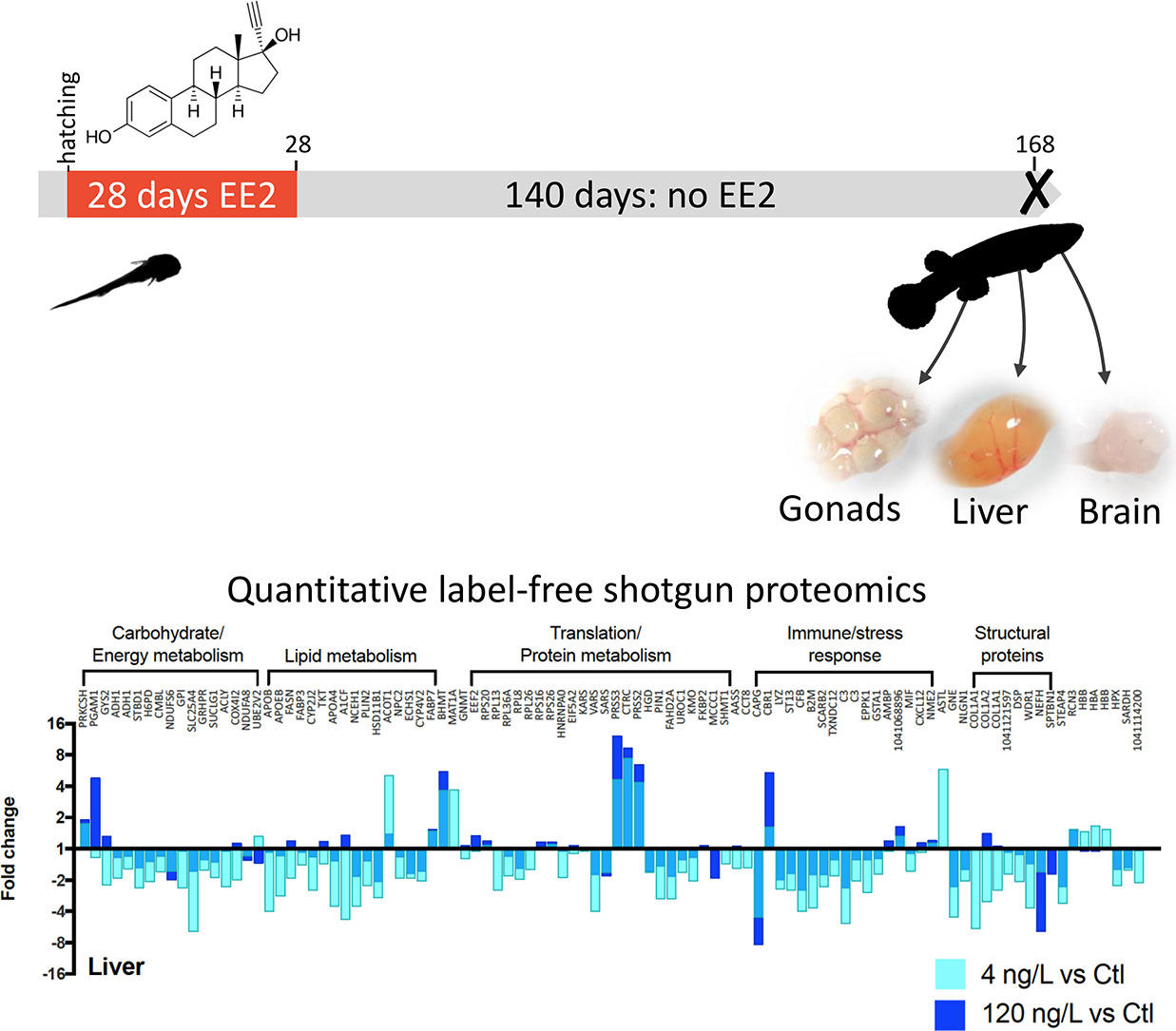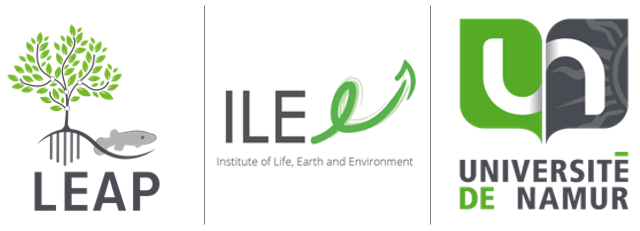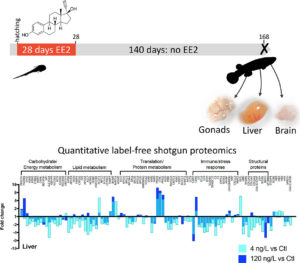A new publication from our former PhD student Anne-Sophie Voisin is now available in Journal of Proteomics. We showed that adult mangrove rivulus exposed during early life stages to an endocrine disrupting chemical (17-alpha-ethinylestradiol) present significant changes on the protein expression profile in brain, liver and gonads in adults, 5 months after the end of the exposure. It is our first publication using a modern proteomic workflow on our model species in collaboration with our colleague from UC Davis, Dietmar Kültz. It emphasizes that early life stages are critical windows that are sensitive to environmental pollutants, and that these exposures can trigger molecular changes later in life, and possibly explain latent diseases. This article can be found here.


